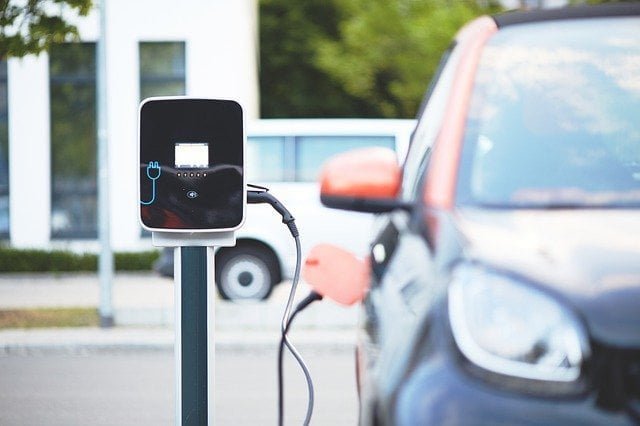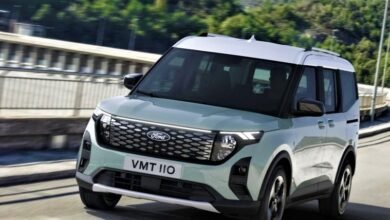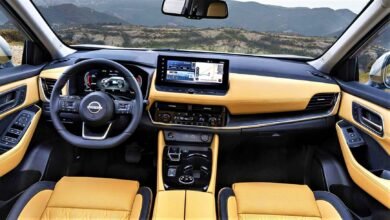
but they are still a novelty for most people.
Electric cars may be growing in popularity but they are still a novelty for most people. The vast amount of information about technology, how it is used, and what the major brands offer can be overwhelming when trying to decide if an electric vehicle is right for your life. The first step to buying an electric car for most people is to learn about the capabilities and limitations of electric cars in general and to understand whether one is suitable for your everyday life.
There is a lot that you have to consider before trading your reliable combustion engine driven car for a battery electric car. However, with some great new products on offer from brands like Audi, Nissan, BMW, Volkswagen, Tesla and many more, we wanted to keep up with the world of electric cars and understand everything you need to know before buying an electric car the first time. We spoke to Tom Callow, director of strategy at the Chargemaster charging point operator and fellow EV guru Tom Taylor to answer some of the most frequently asked questions about electric vehicles.
How do I charge my EV or PHEV?
The speed at which you can charge depends on your vehicle, and where you are trying to deliver it. In general, there are three standards, the slowest of which is 3 kW, which usually works with a three-pin plug like yours. d Use it in a household socket. Then there’s 7 kW, which runs at 32 amps. This is the setting used in most home charging “capsules” you see in homes.
The fastest of all is DC, although it does require your car to have some extra electricity to handle power rates of up to 50 kW. Most UK users are exposed to this system only at electric motorway stations in motorway service areas, or in IKEA parking lots. Tesla’s Supercharger provides faster charging than “conventional” DC, by the way. But it’s exclusive to Model S and Model X owners.
Prices for home charging systems vary depending on the complexity of the installation, but as a rough guide, buying a simple 7kW home charger should cost around £500 with installation. Likewise, many manufacturers offer a 3 kW system included as part of the package when buying their electric vehicle – and you should be able to upgrade that to a more efficient charger for a small fee.
How long does it take to charge an electric car?
If you’re using a three-pin plug, you should prepare yourself to wait – a pure electric vehicle with a reasonably large battery takes anything from eight to 12 hours to fully recharge in this setup. Upgrade to a suitable 7kW home charging box and you can expect that time to be halved.
Roadside DC chargers are designed to be used mid-flight, so they’ll get you from a flat to about 80 percent in less than an hour — 45 minutes isn’t uncommon. Keep in mind that battery and charging technology is constantly improving, so expect electric vehicles in the future to have faster charging times and greater range. We have already seen significant improvements in these areas over recent years.
How can I charge my electric car if the public charging station is full?
In fact, most electric vehicle users have charging facilities at home, and only use public points as a way to exploit the “dead time” when the car is stationary anyway. There was a period when owners of pure electric cars were frustrated with users of plug-in hybrid cars whose cars are often located in charging slots. However, the introduction of shipping charges made this issue less significant.
Do you consume electric car batteries?
Batteries in electric cars deteriorate over time, as do other rechargeable devices such as a mobile phone. However, the time period varies greatly between electric cars and mobile phone batteries. While a phone battery may last a few years, the battery in an electric car lasts an average of about 10 years, which, incidentally, is the same as a normal car. This means that, in theory, you don’t have to worry about that as long as you change your car every decade.
What happens to ready-made batteries? Do they harm the environment?
Not right. Spent batteries may not be usable in cars, but they would still be very useful for storing energy. Most auto manufacturers are working on schemes to reuse batteries in everything from home power plants to major industrial networks that will help the national grid manage the flow of energy and reduce the waste of energy produced during periods of low demand. In other words, your car will be able to return power to the grid.
Is an electric vehicle safe in the event of an accident?
Electric and hybrid cars undergo the same Euro NCAP crash test as conventional cars, and they score solid. The Nissan Leaf and Renault ZOE (both purpose-built pure electric vehicles) earned the top five stars — a rating that has been matched in other tests by Toyota C-HR hybrid, Audi A3 Sportback e-tron, Tesla Model S and Hyundai Ioniq.
It is also worth noting that unlike gasoline-powered cars, pure-electric cars do not have tanks full of fuel on board.
What are the residual values as electric vehicles?
Electric cars are off to a bit of a rough start in terms of residual values. As the market was in its early stages of growth makers, such as Renault , retaining battery ownership and renting it to the user, regardless of whether they were the first owner or not, muddied the waters. Likewise, the government’s granting of plug-in cars to zero-emissions vehicles has led to lower values from what appear to be relatively high prices when new.
Today, the market for used electric vehicles is more predictable, and the values are robust—stronger than equivalent conventional vehicles in many cases. The demand for used cars in general is historically high, and electric cars in particular are in great demand by buyers and dealers, keeping prices high.
As electric cars become more and more popular, more and more liquidators are being sold to the used car market. The range of choice for second-hand buyers will only expand over time, but demand still seems likely to outpace supply as we head toward the 2030 petrol and diesel sales ban.
Is it better to rent an electric car or PCP so that the manufacturer takes the risk?
In our opinion yes. Despite promising signs, the electric vehicle market is still relatively young and the technology is moving very fast. So what the manufacturer considers an appropriate “guaranteed future value” now may not be viable when you reach the end of your 36-month deal. A PCP will protect you from taking an extra hit in depreciation because you should simply be able to get away from the car and get another one. In fact, as long as the deposit and the monthly payments are acceptable to you, it makes the rest of the equation – including the key point for residual values - a manufacturer problem
What is the best time to buy an EV?
The auto market has experienced a period of unprecedented turmoil over recent years with supply and demand problems caused by the global pandemic. To some extent, this has disrupted the usual seasonal patterns and market demand, but we should see some return to normalcy in the coming months and years.
In general, electric and hybrid cars fall into the same sales patterns as regular cars, so the best time for deals is around the license plate change in March and September.
If anything, deals on pure electric cars could be more attractive, because some manufacturers are putting these cars into their salesmen’s bonus plans – so if they want extra cash for a good quarter sales of petrol cars, they also need to convert a few of electric vehicles. Manufacturers also have CO2 emissions targets to reach as many people need to sell electric models to balance gasoline and diesel sales.
Does electric vehicle insurance cost more?
Usually not. Some insurance companies may even offer you a small discount on an EV policy, due to its environmental credentials and the fact that pure electric car owners tend to drive fewer miles, and because they are primarily used in cities, the speeds are higher. However, some cover providers still believe there is an added risk of charging equipment, or even the possibility of people tripping through your cable if the car is plugged in on the street.
Consider the high price list of electric and plug-in hybrid cars, and you end up with a final bill that’s likely about the same as for conventional powered cars. As always, it pays to shop.
How much does an electric car service cost?
Of course, service bills will vary from vehicle to vehicle – and you’ll also notice a difference between the costs of pure electric cars and hybrid cars. That’s because all electric vehicles have fewer moving components than anything powered by an internal combustion engine.
Can I drive it through water?
Yes really. The general advice is almost the same as for conventional powered cars: don’t handle water that will be on top of the tires. But it is no problem to drive on rainy roads during rain. It’s a good idea to take an EV at an automated car wash, too.
What is the cost of charging an EV?
Home charging rates will depend on your energy tariff, but as a really rough guide, a pure electric car with a decent sized battery – something like the Vauxhall Mokka -e – will cost you between £5-6 to charge from the apartment. Charging points at motorway service stations now cost a flat connection fee of £3, plus a certain amount per kWh. For a typical 80 per cent recharge, you should expect to pay around £6 or £7.
What happens if my electric car runs out?
While a plug-in hybrid always has a combustion engine for emergency reference, a flat-battery electric car doesn’t go anywhere.
Almost all cars sold in the UK come with a fault cover for at least a year, and this applies as much to pure electric vehicles as it is to petrol or diesel models. Many electric vehicles offer complete coverage for three years of breakdown to help ease the painful process of running out of battery power.
If you are buying a used electric car that is more than three years old, by the way, you should consider home recovery services. Most major providers have schemes that include electric vehicle assistance.
Are all charging cables the same?
frustrated, no. Even among regular electric cars, there is still some variety in the sockets used. A few manufacturers, such as Mitsubishi and Nissan, still adhere to the CHAdeMO standard, but most electric vehicles can be charged using what’s called a Type 2 Mennekes socket. Some at-home “quick” chargers have a cable built into the case; Make sure the socket on the other end matches the vehicle you will be running.
DC chargers at highway service stations and IKEA branches use either Mennekes with two extra slots – called CCS – or a version of CHAdeMO. Mennekes and CCS are expected to become the standard in the coming years.
Once you’ve decided which make and model you’d like to choose, it’s time to start shopping for deals. Our advice is to look carefully at PCP and lease contracts on electric vehicles because too much uncertainty about residual values and reliability will be a problem with the manufacturer rather than yourself. The financing deal will also let you know if the electric vehicle will fit into your lifestyle over an extended period without making a significant financial commitment. Many manufacturers offer innovative ways to buy and operate an electric car with battery rental options, access to charging networks and short-term loans for conventional cars, all available as part of the deal.
Where to buy an electric car
Buying an electric car – or any type of car for that matter – is not an easy task right now. The global shortage of semiconductors has greatly affected the ability of manufacturers to produce new cars, so don’t get your hopes up if you plan to order a new electric car from your local dealer.
However, you will find some new and used electric cars and plug-in hybrid vehicles at authorized dealerships, auto brokers, and auto supermarkets. The pros and cons of each can be found in the summaries below.
Licensed Car Dealers
Licensed auto dealerships are the main avenue for auto manufacturers looking to put their products in your driveway. As a result, any salesperson you encounter at the dealership should be an expert on their products.
Moreover, purchasing through a trusted agency will buy you more support in terms of repairs and warranty work. It can also be the best place to partly part with your current car provided you are behind the wheel of one of their new cars.
The limitation, of course, is that the franchisee will only sell models of that franchise, which limits the number of different cars you can see on the site. Everything in the showroom will be designed to show the cars in the best possible light, and there should be a variety of brochures that you can do.
If you are not bothered about whether the car is already registered, then authorized dealers will have access to a large selection of used and almost new models by the manufacturer. The great benefit of these cars is that they are often covered by the used car warranty and the certified system will guarantee their quality.
In terms of ones and zeros, the franchisor will be able to be very flexible with their financing offers, mostly due to the fact that they have support from the manufacturer’s financial department behind them, which means special offers that help you drive. It will likely come your way. Furthermore, the majority of traders will have a financial expert on site, so all the options available to you can be clearly explained. Don’t forget that as with all sales there will be room for negotiation, sales goals must be met, which is something you can use to your advantage.
car broker
Using an auto broker can be an excellent way to save yourself some effort and allow an experienced negotiator to get the most for you. Or at least in theory. The point is that the dealer from whom the car comes should pay the broker to get the car, not you. Reputable and successful auto brokers will have plenty of customer reviews for you to ensure you get great service.
Since auto brokers work by ordering cars from dealers in droves, there is always a chance that the exact car you were looking for won’t be shown, and while this can be as simple as a blue car instead of a black car, it can also mean Bigger changes like trim level. There is a risk that the broker will offer you cars from dealers who can get the best commission, so take the things brokers say with a pinch of salt before you buy.
Car supermarket
Car supermarkets are exactly what they sound like – a huge selection of a huge mix of car makes and models. From your garden-variety hatchback to the family SUV, there should be a car for everyone, including those who want an EV. However, unlike franchised dealers, almost all cars, or purchased new, will be used in bulk as ex-demonstrators, part exchanges, and pre-registered vehicles from the manufacturers.
In general, the biggest advantage is the diversity offered. You are not limited to one brand and therefore you can compare cars more easily. However, the majority of the cars on display will be the main winner because these supermarkets are in the business of selling large numbers of cars. Since electric cars are still rare compared to cars with conventional motors, you may find that the selection in car supermarkets is a little limited.
As you will find at authorized dealers, there will be a range of flexible financing deals, which will allow more buyers to find the right deal for them. One point to keep in mind is that all other aspects of car ownership such as service, maintenance and recall work will most likely not be covered by the supermarket as they will not have the facilities, but some do offer guarantees.



